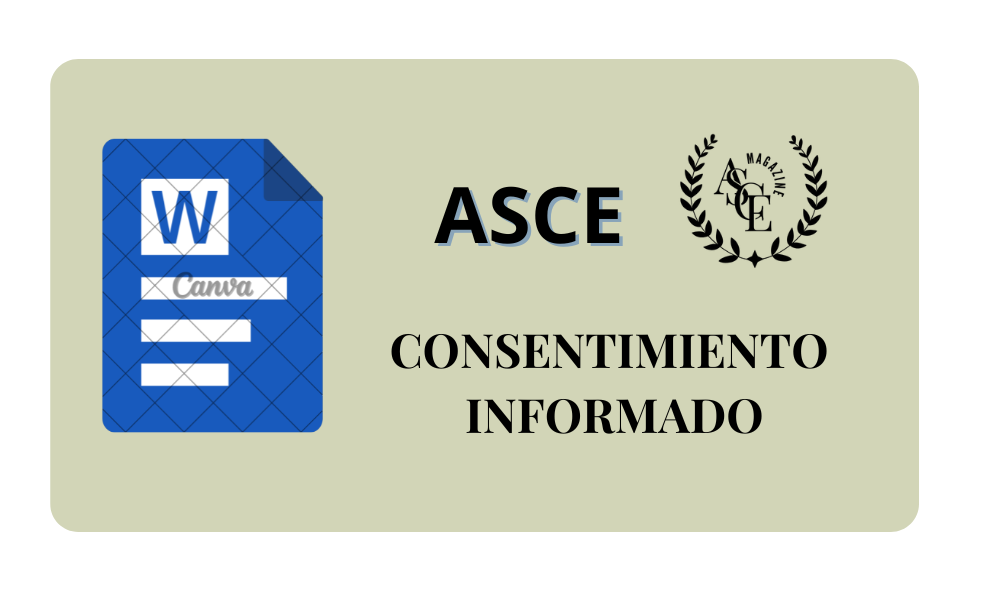Impact of the use of mobile technologies on the academic performance of high school students.
DOI:
https://doi.org/10.70577/ASCE/795.811/2025Keywords:
Mobile devices, high school students, academic performance, educational use of devicesAbstract
This article addresses the problem of the growing use of mobile technologies in high school students and its possible impact on academic performance. The general objective was Impact of the use of mobile technologies on the academic performance of Baccalaureate students, through a systematic review of recent scientific literature. The methodology was based on a systematic review with a descriptive approach, following the guidelines of the PRISMA method in order to guarantee rigor and transparency. 14scientific articles published between 2020 and 2025 were included in indexed academic databases such as ERIC, Scielo, RedALyC, Dialnet and Google Scholar, applying inclusion and exclusion criteria. The results showed that the use of mobile technologies can have both positive and negative effects in terms of academic performance, depending on the type of use.A high percentage of the studies showed improvements in motivation and in the development of academic learning when these devices were used for academic purposes, However, distraction and reduced school performance were found, due to technological dependence on their use in a recreational way and without limiting the hours to students of mobile technologies. It is concluded that mobile devices facilitate access to resources and tools that can benefit learning and promote student autonomy, if used effectively. But challenges and limitations were also observed, such as the preference for using these devices for recreational activities, too much time of use for entertainment purposes.
Downloads
References
Ahamd, F., Jami, S., y Muhammad, N. (2024). Relación entre el uso del teléfono móvil y el rendimiento académico de estudiantes de secundaria en la HORE. Revista Internacional de temas Contemporanesos en ciencias Sociales, 3(1). https://doi.org/https://ijciss.org/index.php/ijciss/article/view/318/326
Calderón, G., y Sánchez, P. (2021). Impacto del uso de dispositivos móviles en el aprendizaje de estudiantes adolescentes. merging Trends in Education, 3(6). https://doi.org/https://doi.org/10.19136/etie.a3n6.4040 DOI: https://doi.org/10.19136/etie.a3n6.4040
Carrillo , C., Torres, N., Vásquez, V., Iturralde, M., Acosta, J., Enciso, F., . . . Lara, A. (2020). Dispositivo móvil en el aula:¿ Herramienta de aprendizaje o agente distractor? y su impacto en el rendimiento académico. Análisis y aportes sobre el fenómeno educativo en el bachillerato, 31. https://www.researchgate.net/profile/Oscar-Zaragoza-Vega/publication/327634085_Analisis_y_aportes_sobre_el_fenomeno_educativo_en_el_bachillerato_Innovacion_evaluacion_rendimiento_academico_y_competencia_digitales/links/5b9aca3892851ca9ed056334/Analisis-y-
Castillo, D., y Medina, E. (2024). Análisis de la relación entre el uso de tecnologías móviles y el rendimiento académico. ASCE MAGAZINE, 3(1), 1-21. https://doi.org/https://doi.org/10.70577/damgfp82/ASCE/1.21 DOI: https://doi.org/10.70577/damgfp82/ASCE/1.21
Dzib, D. L. (2022). La influencia del smartphone en el rendimiento académico de universitarios en la nueva normalidad: caso Universidad Juárez Autónoma de Tabasco. Revista Iberoamericana Para La Investigación Y El Desarrollo Educativo, 12(24). https://doi.org/https://doi.org/10.23913/ride.v12i24.1178 DOI: https://doi.org/10.23913/ride.v12i24.1178
Gonzabay , M., y Ramírez, R. (2024). Aplicaciones móviles y el rendimiento académico en estudiantes de bachillerato. Polo del Conocimento , 9(8), 1688-1708. https://doi.org/https://doi.org/10.23857/pc.v9i8.7784
Hilt, J. (2020). Dependencia del celular, hábitos y actitudes hacia la lectura y su relación con el rendimiento académico. Revista de Investigación Apuntes Universitarios , 9(3). https://doi.org/https://doi.org/10.17162/au.v9i3.384 DOI: https://doi.org/10.17162/au.v9i3.171
Jia, Y., Lan, Y., Liu, S., Chen, B., y He, G. (2022). Tiempo de uso de teléfonos inteligentes y tiempo total frente a la pantalla entre estudiantes de 10 a 19 años y sus efectos sobre el estrés académico: un gran estudio de cohorte longitudinal en Shanghái, China. Sec. Infancia y Salud(10). https://doi.org/https://doi.org/10.3389/fpubh.2022.869218 DOI: https://doi.org/10.3389/fpubh.2022.869218
Kus, M. (2025). Un metaanálisis del impacto de los factores relacionados con la tecnología en el rendimiento académico de los estudiantes. Sec. Psicología Educativa, 16. https://doi.org/https://doi.org/10.3389/fpsyg.2025.1524645 DOI: https://doi.org/10.3389/fpsyg.2025.1524645
Muñoz, R., Díaz , A., y Sabariego, J. (2023). Impacto de las redes sociales en el rendimiento académico de los adolescentes: Estudio de Instagram y TikTok. Ciencia Y Educación, 4(2), 12-23. https://doi.org/https://www.cienciayeducacion.com/index.php/journal/article/view/163
Paterna , A., Alcaraz, M., Aguilar, J., Salavera, C., Demetrovics, Z., y Griffiths, M. (2024). Uso problemático de teléfonos inteligentes y rendimiento académico: una revisión sistemática y un metanálisis. J Behav Addict, 13(2), 313-326. https://doi.org/https://doi.org/10.1556/2006.2024.00014 DOI: https://doi.org/10.1556/2006.2024.00014
Rumiche-Valdez, M. E.-T. (2021). Los efectos positivos y negativos en el uso de las Tecnologías de la Información y Comunicación en educación. Hamut’Ay,, 8(1), 23-32. https://doi.org/https://doi.org/10.21503/hamu.v8i1.2233 DOI: https://doi.org/10.21503/hamu.v8i1.2233
Singh , M., Kodi, S., y Deol, R. (2021). Impacto de la dependencia del teléfono móvil en el comportamiento y el rendimiento académico de los adolescentes en escuelas seleccionadas de Uttarakhand, India. J Educ Health Promot. 2021. https://doi.org/10.4103/jehp.jehp_915_20. PMID: 34761013; PMCID: PMC8552249. DOI: https://doi.org/10.4103/jehp.jehp_915_20
Spiratos, K., y Ratanasiripong, P. (2023). Uso problemático de teléfonos inteligentes entre estudiantes de secundaria. Revista de Investigación y Desarrollo en Administración Escolar, 8(2), 76-86. https://doi.org/https://doi.org/10.32674/jsard.v8i2.4893 DOI: https://doi.org/10.32674/jsard.v8i2.4893
UNESCO. (2023). Tecnologías de la información y la comunicación (TICs) en la educación. https://learningportal.iiep.unesco.org/es/fichas-praticas/mejorar-el-aprendizaje/tecnologias-de-la-informacion-y-la-comunicacion-tics-en-la
Zavala , B. (2020). Uso del teléfono celular y rendimiento académico en estudiantes del bachillerato general unificado en una unidad educativa de Guayaquil, 2020. Universidad Cesar Vallejo. https://repositorio.ucv.edu.pe/bitstream/handle/20.500.12692/51851/Zavala_PBM-SD.pdf?sequence=1&isAllowed=y
Zuleta, R., Ramos, J., y Hernandez, J. (2024). El Impacto del uso Excesivo del Teléfono Inteligente en el Rendimiento Académico: Una Revisión Sistemática de la Literatura. Ciencia Latina , 8(3). https://doi.org/https://doi.org/10.37811/cl_rcm.v8i3.11724 DOI: https://doi.org/10.37811/cl_rcm.v8i3.11724
Downloads
Published
How to Cite
Issue
Section
License
Copyright (c) 2025 Mg. Julia Guadalupe Calero Ledesma, Mg. Ricardo Vinicio Gavilanes Yanez, Mg. America Margoth Endara Tisalema, Mg. Mariana De Jesus Yepez Obando

This work is licensed under a Creative Commons Attribution-NonCommercial-NoDerivatives 4.0 International License.
Eres libre de:
- Compartir : copiar y redistribuir el material en cualquier medio o formato
- Adaptar : remezclar, transformar y desarrollar el material
- El licenciante no puede revocar estas libertades siempre y cuando usted cumpla con los términos de la licencia.
En los siguientes términos:
- Atribución : Debe otorgar el crédito correspondiente , proporcionar un enlace a la licencia e indicar si se realizaron cambios . Puede hacerlo de cualquier manera razonable, pero no de ninguna manera que sugiera que el licenciante lo respalda a usted o a su uso.
- No comercial : no puede utilizar el material con fines comerciales .
- CompartirIgual — Si remezcla, transforma o construye sobre el material, debe distribuir sus contribuciones bajo la misma licencia que el original.
- Sin restricciones adicionales : no puede aplicar términos legales ni medidas tecnológicas que restrinjan legalmente a otros hacer algo que la licencia permite.





































